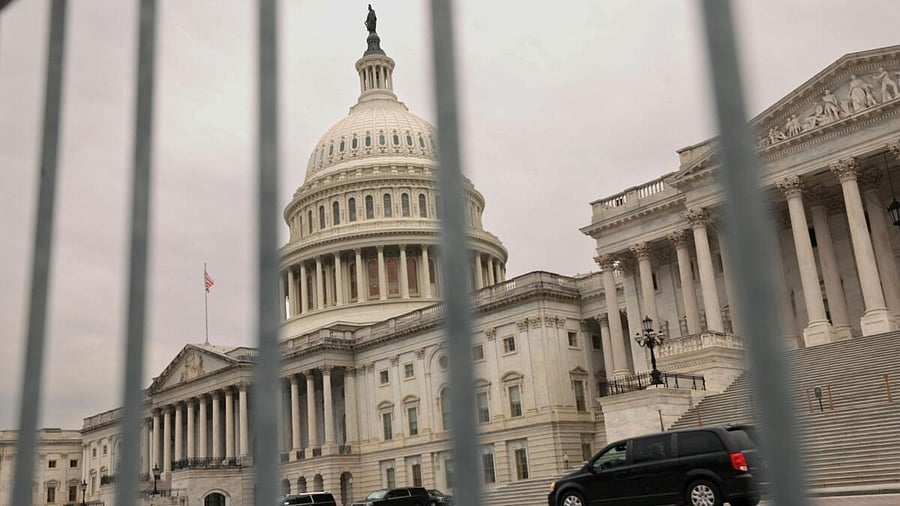
The dome of the Capitol is seen through a security fence on a day where a potential government shutdown looms during the holidays after a spending bill backed by Donald Trump failed in the U.S. House of Representatives
Credit: Reuters Photo
House Republicans, grasping to avoid a government shutdown at midnight, are discussing a plan that would keep federal funding flowing through mid-March and provide disaster relief money and assistance for farmers while jettisoning President-elect Donald Trump’s demand to raise the debt ceiling.
A bill packaging the spending measures with a two-year suspension of the debt cap failed on the floor Thursday evening after dozens of Republicans balked at raising the nation’s borrowing limit. The new idea Republicans are considering is to have three separate votes on each element of the funding measure, allowing lawmakers to register their position on each one individually, and dropping the debt piece altogether.
At least one House Republican who opposed the bill Thursday night said he would be amenable to that strategy.
“I’d like to see how it’s laid out, but that may be structurally a smart way to do it,” Rep. David Schweikert of Arizona told reporters.
Congress has not cleared any individual spending bills, and after a roller-coaster week of negotiations, it is unclear what plan could pass both the Republican-held House and the Democratic-controlled Senate.
House Speaker Mike Johnson, R-La., abandoned a bipartisan funding deal he reached with Democrats earlier this week under a barrage of criticism from Elon Musk, Trump’s ally leading his push to rein in government, and the president-elect himself. If he cannot find a way forward before 12:01 a.m. Saturday, the government will shut down.
Here is what to know:
Thursday vote:
The hastily produced plan Johnson put on the floor Thursday evening failed by a vote of 235-174, with 38 Republicans and 197 Democrats voting no. Right-wing lawmakers balked at increasing the government’s borrowing limit, something many of them had long pledged not to do without spending cuts to keep the debt from ballooning further. House Democrats refused to back the deal because it was stripped of many policy provisions they supported as part of the original bipartisan deal, and they argued it would smooth the path for Trump and his allies to push through tax cuts for the wealthy when they take power next year.
Defying Trump
Dozens of conservative Republicans who normally align themselves with Trump’s philosophy voted against his wishes Thursday night, raising questions about his supposed lock on his party. Whether this reflects some loss of control over the party or merely a hiccup may not be known until he puts a razor-thin Republican majority to the test after he returns to the White House next month.
Debt ceiling
A failure to raise the borrowing limit could cause a default on the national debt. This current limit is expected to be reached in January, although many think it could be stretched into the spring. Trump has made clear that he does not want to be responsible for raising it. On Friday, he continued to agitate to increase the cap now, potentially for his entire four-year term.
Shutdown shock:
While most government agencies have developed contingency plans, a shutdown would have widespread effects across the United States, including travel disruptions. Benefits including Medicare and Social Security would continue without interruption because Congress authorizes them separately, with laws that do not need annual renewals.